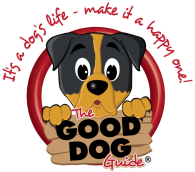It’s easy to tell when your dog is truly sick: Vomiting, diarrhea, or extreme pain are pretty easy to spot. But what about when it’s not so easy to spot? Symptoms like lethargy or depression can be hard to spot. Worse yet, there are other seemingly common symptoms that can easily go unnoticed and leave your dog at risk for a slew of diseases, as well as malnutrition.
To help pet parents stay on top of their dog’s health, we have gathered up a few signs of poor nutrition and wellness in dogs.
Bad Eating Habits
Your dog may skip a meal or two, especially if it’s hot outside, but anything more than this should be a red flag that something’s wrong. Dogs who go two days without eating should be examined.
It is common for dogs to develop abnormal eating habits as a result of certain diseases. It may be time to take your dog to the vet if he or she is usually well-behaved, but suddenly begins raiding the kitchen or garbage
Unusual Fur Texture
The coat of a dog should be thick, shiny, and soft. A dull, rough, dry, or bald coat could be a sign that something is wrong. The problem could be caused by the wrong kind of food, an allergy, or a skin condition. In either case, a trip to the vet for a questionable coat is essential.
Unusual Bowel Movements
Healthy dogs have small, firm, moist stools. Stools that are dry and hard may indicate health problems, dietary problems, or dehydration. See your veterinarian if your dog exhibits any of the following symptoms:
Worms in the stool
Diarrhea for more than 24 hours
Straining and ‘dragging’
Blood or mucus from the stool
Red and Itchy Eyes
Cloudy or red eyes, squinting, or excessive discharge from your dog’s eyes may indicate an infection or injury. Bring your dog to the veterinarian as soon as possible. Eye diseases can progress rapidly and result in blindness. Infections can be treated with medicine or symptoms can be treated with medicine.
Emergency Situations
There are some situations that go beyond “Should I call the vet?” and escalate straight to the vet’s office. If your pet is observing any of the following, get them to an emergency vet clinic asap:
Open wounds and potentially broken bones
Difficulty breathing or unconsciousness
Vomiting or passing blood
Seizures
Sudden collapses
Extreme pain with whining and shaking
Hard and swollen abdomens
Dog nutrition: why is it so crucial?
Let’s talk about why nutrition is so important for dogs. Healthy dogs require proper nutrition. As with humans, your dog’s nutritional needs may change with age and should be evaluated regularly to ensure health. Inadequate nutrition is at the root of many serious illnesses and conditions in dogs. It can include obesity, allergies, fur loss, emaciation, and more.
Every breed has its own set of unique health challenges, which you should also investigate. Pet care websites like petcareadvice.com are gold mines for reputable articles written by pet care experts with experience, expertise, and a proven track record. You can also identify your dog’s breed by using websites like the AKC’s. Ask your veterinarian about genetic testing for your pooch if you want to know exactly what breeds make up your pup.
Don’t forget: There is no replacement for a visit to the vet’s office. If you’re unsure whether or not your dog’s health is okay, schedule an appointment with a veterinarian as soon as possible.
Article Supplied
